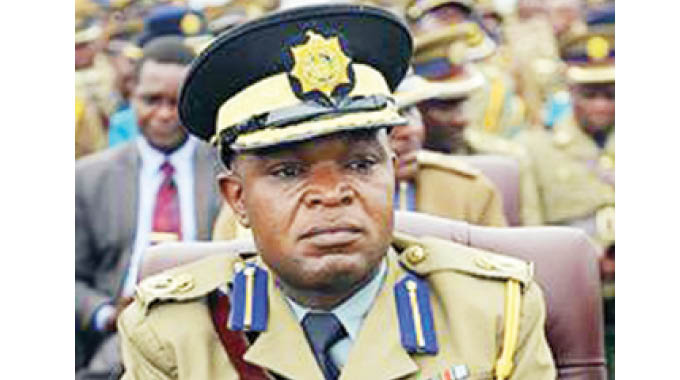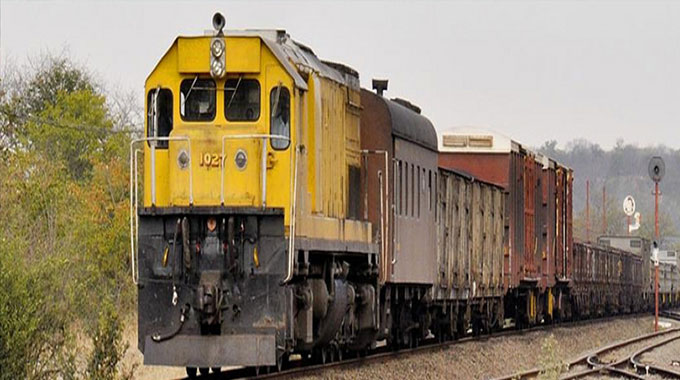Letters to the Editor: Corruption a threat to road traffic laws enforcement

Obey Sibanda, Features Reporter
A white unregistered pirate taxi speeds past a police road block along Khami Road in Bulawayo, ignoring a traffic policewoman who was flagging it down, narrowly missing her.
The officer screams at the driver as he zooms away. She glares at the disappearing vehicle, powerless. No ticket, no fine, nothing for the reckless driver who acts as though the law does not apply to him.
This is not the first driver to ignore and deliberately break the law, but rather, it has become a norm for daring kombi drivers and pirate taxi drivers to do as they please, endangering the lives of those manning the roadblock and those on board.
In 2016, a pirate Honda Fit with six passengers on board sped past a police road block along the Masvingo-Zvishavane highway and reportedly exploded into a ball of fire on impact, burning occupants beyond recognition when it collided head-on with a Toyota Noah. Ten people were killed while four others were seriously injured.
Speed limits appear to be viewed as mere suggestions, driving against traffic is routine and if one is caught, a little money makes all their troubles go away as corrupt police officers routinely accept bribes.
Traffic enforcement is threatened by corruption and if traffic laws are not enforced or are perceived as not being enforced, it is likely they will not be complied with and therefore will have very little chance of influencing behaviour change and expected reduction in road traffic fatalities and injuries.
Corruption has also crippled the justice delivery system in issuing of licences at the Vehicle Inspection Depot (VID). Although the Government has come up with various policies to deal with the menace of unqualified drivers and rein in fake driver’s licences, enforcement is poor.
Unscrupulous drivers seem to always find a way around the system. Instead of dealing with the transgressions some police officers and VID workers manning highways demand cash from the drivers who would want to evade arrest. This has led to countless numbers of people being killed or disabled on our roads.
Minister of Information, Publicity and Broadcasting Services Monica Mutsvangwa urged the VID to ensure that public service vehicles not only have valid fitness certificates but should in actual fact be fit for the road.
“Public Service Vehicles might have valid fitness certificates but not be fit to be on the road or to be driven. An operator may have a fleet of 20 buses and use the same set of brand-new tyres to obtain a certificate of fitness for the 20 buses. This is unacceptable,” she said.
The World Health Organisation reports that 90 percent of the traffic deaths occur in low and middle-income countries, even though these countries have approximately 54 percent of the world’s vehicles owing to their struggling economies.
Road traffic accidents are among the leading causes of death in Zimbabwe, a cause that rarely receives the attention it merits. The major country’s roads are so perilous that the probability of dying from a vehicle impact is greater than from the most prevalent natural causes of death.
Not a day passes without road traffic accidents happening on our roads. The highest burden of injuries and fatalities is borne disproportionately by poor people, as they are mostly pedestrians, cyclists and passengers of unroadworthy, overloaded buses and open trucks.
Lack of commuting fares caused by the economic challenges appears to be forcing commuters onto these modes of transport which are far less suited to absorb and withstand accidents which only contributes further to existing vulnerabilities.
National police spokesperson Assistant Commissioner Paul Nyathi highlighted that there are a lot of risks in boarding private vehicles as they usually do not adhere to the minimum number of passengers they should carry. “Trucks were meant for carrying goods from one place to the other, not overloading passengers,” he said.
Poor remuneration exacerbated by the economic challenges is forcing some drivers to be on the wheel for long periods without rest hence they suffer fatigue and are more susceptible to cause accidents especially during the night, either falling asleep at the wheel or making fatal driving errors.
Distracted driving triggered by daily stresses of life can transform minor frustrations into dangerous road rage. Economic challenges have resulted in a growing trend of people who cycle and pedestrians who track on foot to and from work owing to their diminishing buying power and this has come at a price as more pedestrians are run over by vehicles.
The country is characterised by small, overcrowded roads, poorly lit highways, and an absence of dividers and sidewalks significantly raising the risk of fatal accidents. The existing road design does not provide adequate facilities for pedestrians and hence, there exists a constant conflict between the pedestrians and the vehicles in sharing the limited space available on a road.
The most unescapable glitches that propel traffic accidents come from poor infrastructure and infrastructural projects which continue to face difficulties either during inception or completion periods exacerbated by lack of funds and corruption driven by the economic challenges. The impact of corruption increases risk of unsafe conditions on both our roads and transport systems. Reduction of accident rates must be one of the priority issues our government cannot ignore and hence should immediately work towards improving road conditions by dealing with corruption.
Prevention of road accidents is not dependent only on drivers and their abilities, but also on how much governments invest in better infrastructure for roads, road safety awareness programmes and better training systems for drivers.
“Road education efforts including the defensive driving course helps by suppressing road fatalities,” explained Traffic Safety Council of Zimbabwe spokesperson Mr Tatenda Chinoda.
An improved economy and a corruption-free nation will mean improved post-crash care which requires ensuring access to timely pre-hospital care, and improving the quality of both pre-hospital and hospital care, such as through specialist training programmes and enhanced quality of road networks for the benefit of all road users. This can be achieved through measures including improved safety conscious planning, design, construction and operation of roads.
By carefully calibrating growth-enhancing policies, commuters will have liberty to board only reliable vehicles and avoid overloaded ones.
“A shift in the economy will mean better remuneration which will give our voices back to challenge drivers,” observed Mr Wayne Ncube, a commuter from Emganwini.











Comments